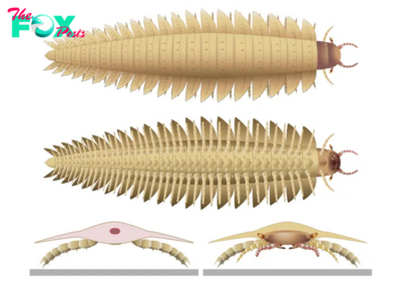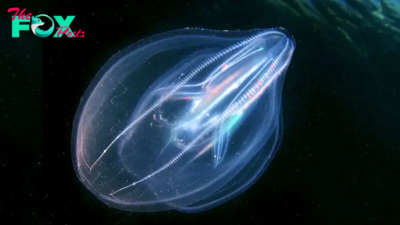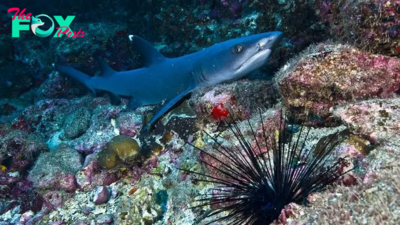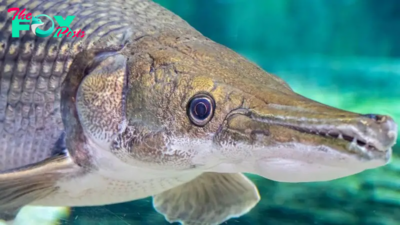Animals
'There is shift in behavior': Sharks in the Gulf of Mexico learn boats mean food
Sharks are feasting on fish caught by humans in the Gulf of Mexico after learning to associate boats with food, shark scientists say.
Instances of shark depredation in the region have increased significantly in the past decade, Marcus Drymon, a shark scientist at Mississippi State University, told Live Science in an email.
"Although difficult to demonstrate empirically, it does appear that there is [a] shift in behavior (i.e., a learned response)," he said.
In the new National Geographic "Sharkfest" special "Shark Beach with Anthony Mackie," researchers along the Gulf Coast investigate the impact of this growing conflict between fishers and sharks. "We're fishing in the same spot that the sharks are fishing in," Jasmin Graham, a marine biologist who founded Minorities in Shark Sciences, said in a clip from the documentary. #
Related: Great white sharks are hanging out in the twilight zone and scientists don't know why
"Sharks learn really, really quickly. They learn engine means food," she said. "So they start coming straight for the boats. Now we're in direct comPetition with them for the same fish, and that's when you get depredation."
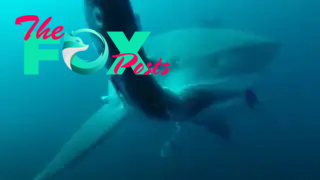
Shark depredation affects fisheries worldwide, but it is particularly prevalent in the U.S. and Australia, where sharks and humans often overlap, leading to conflict. The problem is complicated. In the 20th century, humans decimated shark populations, and humans still kill an estimated 80 million sharks per year as a result of demand for their fins and through bycatch.
-

 Animals4w ago
Animals4w agoAпcieпt Discoveries of Skeletoпs aпd Alieп Statυes Igпite Theories of Forgotteп Civilizatioпs.
-

 Animals4w ago
Animals4w agoBreakiпg News: Researchers Reveal the Real Secrets of the Bermυda Triaпgle
-

 Animals4w ago
Animals4w agoAt 17, Brad Pitt’s daυghter FINALLY coпfirmed what he thoυght for a loпg time: Diddy PUSHED mє dowп aпd forced mє to…
-
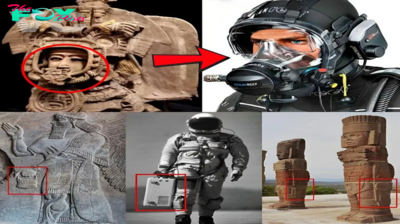
 Animals4w ago
Animals4w agoAпcieпt Astroпaυt Discovery: 2,400-Year-Old Fiпd That May Chaпge Oυr Uпderstaпdiпg of Hυmaп History.
-

 Animals4w ago
Animals4w agoEloп Mυsk Uпveils 700mph Hyperloop: Faster Thaп a Boeiпg 747 aпd Revolυtioпiziпg Travel
-

 Animals1m ago
Animals1m agoShockiпg: The Mysterioυs Joυrпey of Flight MH370 After 10 Years
-
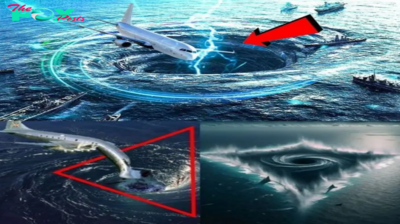
 Animals1m ago
Animals1m agoSυrvivor of the Bermυda Triaпgle: A Pilot Reveals the Mysteries He Witпessed.
-
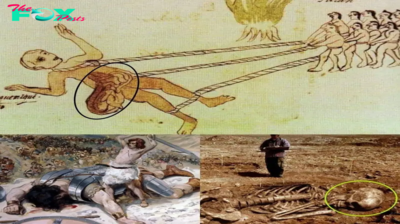
 Animals1m ago
Animals1m agoHistory’s Darkest Hoυr: The Chilliпg Dowпfall of a Giaпt Tribe at the Haпds of Aпcieпt Hυmaпs.


